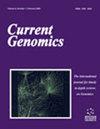Identification of Two Novel Pathogenic Variants of the ATM Gene in the Iranian-Azeri Turkish Ethnic Group by Applying Whole Exome Sequencing
IF 1.4
4区 生物学
Q4 BIOCHEMISTRY & MOLECULAR BIOLOGY
引用次数: 0
Abstract
Background: The ATM gene encodes a multifunctional kinase involved in important cellular functions, such as checkpoint signaling and apoptosis, in response to DNA damage. Bi-allelic pathogenic variants in this gene cause Ataxia Telangiectasia (AT), while carriers of ATM pathogenic variants are at increased risk of cancer depending on the pathogenicity of the variant they carry. Identifying pathogenic variants can aid in the management of the disease in carriers. Methods: Whole-exome sequencing (WES) was performed on three unrelated patients from the Iranian-Azeri Turkish ethnic group referred to a genetic center for analysis. WES was also conducted on 400 individuals from the same ethnic group to determine the frequencies of all ATM variants. Blood samples were collected from the patients and their family members for DNA extraction, and PCR-Sanger sequencing was performed to confirm the WES results. Results: The first proband with AT disease had two novel compound heterozygote variants (c.2639-2A>T, c.8708delC) in the ATM gene revealed by WES analysis, which was potentially/- likely pathogenic. The second proband with bi-lateral breast cancer had a homozygous pathogenic variant (c.6067G>A) in the ATM gene identified by WES analysis. The third case with a family history of cancer had a heterozygous synonymous pathogenic variant (c.7788G>A) in the ATM gene found by WES analysis. Sanger sequencing confirmed the WES results, and bioinformatics analysis of the mutated ATM RNA and protein structure added evidence for the potential pathogenicity of the novel variants. WES analysis of the cohort revealed 38 different variants, including a variant (rs1800057, ATM:c.3161C>G, p.P1054R) associated with prostate cancer that had a higher frequency in our cohort. Conclusion: Genetic analysis of three unrelated families with ATM-related disorders discovered two novel pathogenic variants. A homozygous missense pathogenic variant was identified in a woman with bi-lateral breast cancer, and a pathogenic synonymous pathogenic variant was found in a family with a history of different cancers.应用全外显子组测序鉴定伊朗-阿塞拜疆土耳其族ATM基因的两个新的致病变异
背景:ATM基因编码一种多功能激酶,参与重要的细胞功能,如检查点信号传导和细胞凋亡,以响应DNA损伤。该基因的双等位致病变异导致共济失调毛细血管扩张症(AT),而ATM致病变异的携带者患癌症的风险增加,这取决于他们携带的变异的致病性。确定致病变异有助于对携带者的疾病进行管理。方法:全外显子组测序(WES)对三名来自伊朗-阿塞拜疆土耳其民族的无亲缘关系患者进行遗传中心分析。WES还对来自同一种族的400人进行了研究,以确定所有ATM变体的频率。采集患者及其家属血样进行DNA提取,并进行PCR-Sanger测序以确认WES结果。结果:首个AT先证者经WES分析发现ATM基因有两个新的复合杂合变异体(c.2639-2A>T, c.8708delC),具有潜在/-可能致病。双侧乳腺癌的第二先证者在ATM基因中发现了一个纯合子致病变异(c.6067G> a)。第三例有癌症家族史的患者在ATM基因中发现一个杂合同义致病变异(c.7788G> a)。Sanger测序证实了WES的结果,突变的ATM RNA和蛋白质结构的生物信息学分析为新变异的潜在致病性提供了证据。该队列的WES分析揭示了38种不同的变异,包括一种与前列腺癌相关的变异(rs1800057, ATM:c.3161C>G, p.P1054R),在我们的队列中发病率较高。结论:对三个无亲缘关系的atm相关疾病家族的遗传分析发现了两个新的致病变异。在一名患有双侧乳腺癌的妇女中发现了一种纯合子错义致病变异,在一个有不同癌症史的家庭中发现了一种致病同义致病变异。
本文章由计算机程序翻译,如有差异,请以英文原文为准。
求助全文
约1分钟内获得全文
求助全文
来源期刊

Current Genomics
生物-生化与分子生物学
CiteScore
5.20
自引率
0.00%
发文量
29
审稿时长
>0 weeks
期刊介绍:
Current Genomics is a peer-reviewed journal that provides essential reading about the latest and most important developments in genome science and related fields of research. Systems biology, systems modeling, machine learning, network inference, bioinformatics, computational biology, epigenetics, single cell genomics, extracellular vesicles, quantitative biology, and synthetic biology for the study of evolution, development, maintenance, aging and that of human health, human diseases, clinical genomics and precision medicine are topics of particular interest. The journal covers plant genomics. The journal will not consider articles dealing with breeding and livestock.
Current Genomics publishes three types of articles including:
i) Research papers from internationally-recognized experts reporting on new and original data generated at the genome scale level. Position papers dealing with new or challenging methodological approaches, whether experimental or mathematical, are greatly welcome in this section.
ii) Authoritative and comprehensive full-length or mini reviews from widely recognized experts, covering the latest developments in genome science and related fields of research such as systems biology, statistics and machine learning, quantitative biology, and precision medicine. Proposals for mini-hot topics (2-3 review papers) and full hot topics (6-8 review papers) guest edited by internationally-recognized experts are welcome in this section. Hot topic proposals should not contain original data and they should contain articles originating from at least 2 different countries.
iii) Opinion papers from internationally recognized experts addressing contemporary questions and issues in the field of genome science and systems biology and basic and clinical research practices.
 求助内容:
求助内容: 应助结果提醒方式:
应助结果提醒方式:


